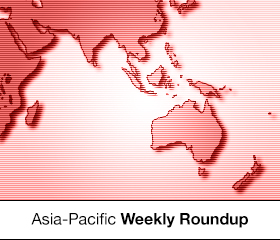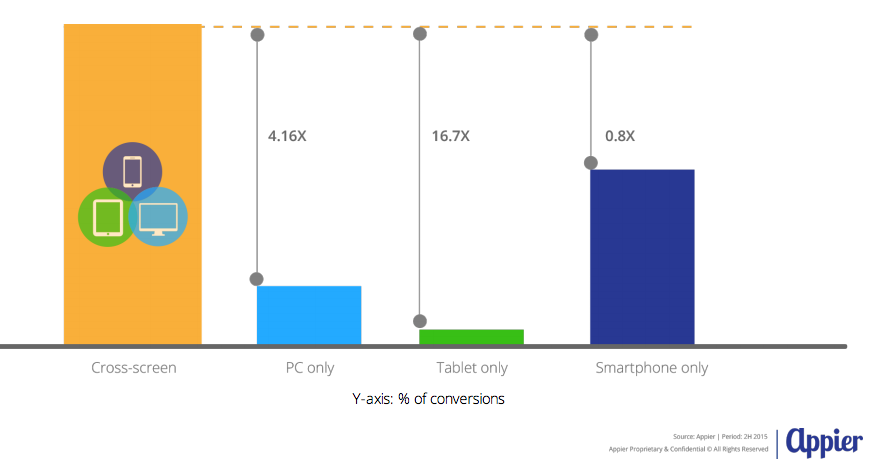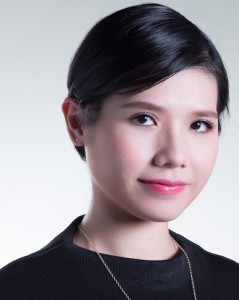India to Spend £5.24bn on Ads; ANZ Marketers Slower to Tap New Tech


In this weekly segment, ExchangeWire sums up key industry updates on ad tech from around the Asia-Pacific region – and in this edition: India to spend £5.24bn on ads; ANZ marketers slower to tap new tech; Asia consumer behaviour differs by screens; Isobar opens up in Vietnam; AU users suffer ad overdose; and Matomy eyes Korea's mobile ad market.
India to spend £5.24bn on ads
Advertisers in India are projected to fork out USD$7.41bn (£5.24bn) on ads this year, 11.3% more than last year's spending.
The upward climb is expected to continue at double-digit growth rates before reaching USD$11.82bn (£8.36bn) in 2020, according to eMarketer.
The market researcher said traditional media would account for most of the ad spend in India, with just 12.6% dedicated towards digital this year. Next year, digital ad spend would cross the USD$1bn (£707.31m) mark, accounting for 14.3% of total spend, before reaching 20.2% in 2020.
And while mobile had been touted to see significant growth in other markets; it would account for just 3.3% of India's total media ad spend this year, clocking less than USD$250m (£176.83m). While small, however, this amount would be double that of last year's spend on mobile ads.
Mobile ads also were expected to account for 50.2% of digital ad spend in 2020, up from 25% this year, and just over 10% of total ad spend in India.
ANZ marketers slower to tap new tech
CMOs in Australia and New Zealand (ANZ) appear to be more hesitant than their global counterparts in tapping new technology to engage audiences.
Only 29% of marketers in the two countries, compared to 40% in the rest of the world, pointed to the need to pioneer new and emerging technology to engage audiences as a strategic priority.
They were also less focused on introducing new skills into their marketing departments, with 13% of respondents in ANZ doing so, compared to 20% in other regions, according to a study conducted by the Economist Intelligence Unit for Marketo.
Some 53% of marketers in ANZ highlighted the need to retain focus on acquisition, compared to 42% in the rest of the world.
Marketo's Sydney-based managing director Greg Taylor said: "The study hints that we are slower to adopt to some of these changes. Australia and New Zealand are both relatively small, yet lucrative, markets. It makes sense to focus on building a strong bond with your existing customers to leverage greater value.
"We need to move on from a pure focus on acquisitions and embrace technology that will help build better brand relationships", Taylor noted. "This report should be a warning bell for the local industry."
The global study polled 499 CMOs and senior marketing executives, 36% of whom were from the Asia-Pacific region.
It revealed that 77% of Australian respondents regarded email as their leading channel for building customer relationships; while those in New Zealand pointed to social media.
Asia consumer behaviour differs by screens
Nearly 7-in-10 consumers in Asia say they respond differently to ads across different screen formats, displaying different behaviours and favouring different ad formats and subject matters.
More than half said they interacted differently with ads across different screens, particularly those in Singapore, Taiwan, and Vietnam, according to Appier's cross-screen user behaviour survey. The findings were based on analysis of the artificial intelligence vendor's campaigns during the second half of 2015, and across 11 Asian markets, including Australia, Korea, Hong Kong, India, Indonesia, Japan, and Malaysia. The analysis encompassed 850 billion data points, including ad requests, impressions, and conversions.
"Clearly, one size does not fit all", the report stated, adding that the results indicated cross-screen support was no longer optional for businesses.
The findings further indicated that cross-screen campaigns that reach consumers across every screen, instead of targeting devices separately, performed 26% better than multi-device campaigns.
"Today's marketers need to consider how different formats and messages can trigger different responses on different screens", Appier said, but noted that it would be premature to write off desktop ads, which it said still played a role in this region. "In fact, cross-screen campaigns outperform single-screen campaigns by a significant margin."

Isobar opens up in Vietnam
The digital marketing agency has opened its Vietnamese office, led by Emerald's founder and managing director, Denise Thi.
Thi's agency was acquired by Isobar's parent group, Dentsu Aegis Network, in March last year; and, as a result, added a team of 80 to Isobar in Ho Chi Minh City and Nha Trang.
The move would enable the agency's local team to leverage its global network and capabilities to better support Vietnam's growing digital and e-commerce sectors. The country has a population of 94 million and boasts a 50% internet penetration, with an e-commerce industry that is expected to be worth USD$7.5bn (£5.3bn) by 2019.
Isobar Vietnam would further bolster the company's operations in Southeast Asia and footprint in Asia-Pacific, which accounted for almost half of its global employee base.

Denise Thi
Isobar Asia-Pacific managing director, Sven Huberts, said: "Vietnam is a market full of possibilities, with a young e-commerce sector that is set to grow very rapidly over the next three years. This is why we are excited to be able to strengthen our presence here and capitalise on this trend."
Thi added: "More and more, clients are searching for effective ways to interact with their consumers; and they are keen to build higher brand awareness, consideration, and loyalty using digital platforms, including mobile, CRM, and e-commerce."
AU users suffer ad overdose
Some 79% of consumers in Australia indicated there were too many ads out there, with few that stood out; and 78% said most ads were forgettable.
Another 73% said ads could not be trusted, according to Grey Group Australia's Eye on Australia report. "Brands are suffering", the study noted. "In this digitally-infused environment, brands are being impacted. Despite still being judged as important, consumers believe there's brand clutter and are losing trust."
Some 38% of Australian consumers believed brands could not be trusted; and 53% said they were not loyal to any brand. And while 73% indicated the importance of brands as these helped them assess the quality of a product, 75% said the market was flooded with brand names from which to choose.
Word of mouth from friends and family, as well as positive customer experience, were the two leading factors that influenced consumers' purchasing decision.
Matomy eyes Korea's mobile ad market
Matomy Media Group has established its presence in Seoul, South Korea, in a bid to tap growing advertising demands in the country's mobile games market, which is the world's fourth largest.
Headed by Korea general manager Kim Seunghyun Ryan, the new outfit also is supported by Nadav Trenter Moser, who is responsible for driving the Israeli mobile programmatic platform's sales and business development in Asia-Pacific.
Kim said: "By expanding our offices to Seoul, we are positioned to serve as the gateway for the Korean mobile games industry to connect their advanced products to the global audience they desire."
He added that South Korea had a mobile penetration rate of 73%, with almost two-thirds of consumers playing mobile games.
Matomy CEO and co-founder Ofer Druker said: "The Asia-Pacific market has staked its claim for the mobile games world with almost half of the market share globally. More and more publishers and developers are looking to take their success to new markets, primarily to the US and Europe.
"The need to differentiate advertising strategies to meet divergent markets is only increasing", Druker said, pointing to Korea as an important market for Matomy as the company looked to increase its focus in the region with investments in mobile and video ad.
The Israeli ad tech firm acquired mobile ad company MobFox in 2014 as part of efforts to bolster its mobile capabilities.
AdvertiserAgencyAnalyticsAPACAustraliaCross-ChannelIndiaMedia SpendMobileSingaporeTargeting








Follow ExchangeWire